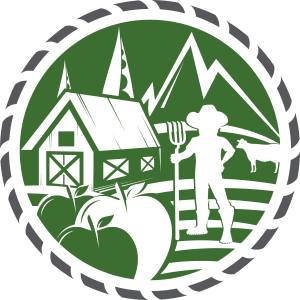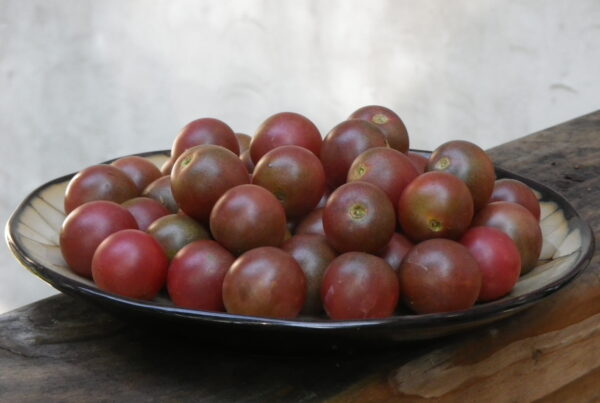Special Conservation Opportunities
Building Soil, Building Equity Initiative
Earn up to $1,000 per acre for adopting Climate Smart Practices
Accelerating Appalachia is seeking applicants from farmers in the region, from Virginia to north Georgia to southern Ohio to participate in their USDA Climate Smart Commodities grant to adopt any of 12 advanced conservation practices in farmland and forest land that sequester carbon, reduce greenhouse gas emissions, and make your farm ecosystem more climate resilient.
The Building Soil Building Equity (BSBE) Initiative will enroll at least 400 producers from the region. Participants will receive training in conservation farming, soil testing services, mentorship, peer support, and national, regional, and local media promotions.
The practices include cover crops, conservation crop rotation, reduced tillage (each paid at $75/ac), prescribed grazing management ($300/ac), field borders, hedgerows, forest farming ($400/ac) and silvopasture, riparian forest buffer, alley cropping, tree and shrub establishment, and wildlife habitat planting (these five practices paid at $1,000 per acre).
Apply now – by December 1. Contact Accelerating Appalachia at 859-279-2075 or email hello@acceleratingappalachia.org.
For more information, visit the website at https://acceleratingappalachia.org/.
Silvopasture in Virginia, Tennessee, and North Carolina
Implement Silvopasture on Your Farm and Get Paid!
Silvopasture is an intentional tree-forage-livestock integrated system that can add value to farm operations by providing shade and fodder for animals, improve forage quality, and diversify income streams. The ASSETS Partnership, consisting of Virginia Tech, Working Trees, and Appalachian Sustainable Development received a NRCS Conservation Innovation Grant to help livestock farmers in Virginia, North Carolina, and Tennessee implement silvopasture systems. The program offers participants up to $1,500 in up front cost share to install the silvopasture planting, up to $90 per acre annually for carbon sequestration, and free technical assistance in establishing the silvopasture.
How to get involved: submit your information at https://workingtrees.com/assets, set up a free call with a technical expert, and select trees to plant.
Wanted!
Your Stories about Farming in the Age of Climate Crisis
I am gathering stories about how climate changes have impacted VABF farmer members’ operations, what strategies or innovations you have found helpful in coping with these impacts, and how a better, more organic/conservation-oriented Farm Bill can help you meet the climate challenge. Specific questions include:
- What changes in weather patterns have you noticed at your location?
- How have these changes affected your farming operation, crops, livestock, and workers?
- What strategies or innovations have you used to cope with climate challenges?
- Have you changed your crop mix, crop rotation, cultivars, livestock species, or breeds in response to the demands of a shifting climate?
- How well have your climate adaptation strategies worked for you?
- Have you utilized any USDA programs (conservation or other) to help you cope with climate changes? Have they been helpful?
I will be using your stories for a breakout session at the VABF / Virginia State University Small Farm Outreach Program (SFOP) Summit to be held in Roanoke on January 19-21, 2024 (see https://vabf.org/2024-vabf-sfop-summit/). It will be Meeting the Climate Challenge: Sharing Stories, Co-creating Solutions. Your stories, shared ahead of time or during the workshop, will become an integral part of our discussion.
If you have a story, to share contact Mark Schonbeck, schonbeckmark@gmail.com or 540-835-7664. Note: if you have observations or opinions to share on this topic yet would rather stay anonymous, I would be very interested in hearing your insights and experiences, as they will inform my presentation at the Conference, and I will maintain confidentiality.
2024 EQIP and CSP in Virginia
Application Ranking Date March 8, 2024
Virginia NRCS has announced its Application Ranking Dates for both the Environmental Quality Incentives Program (EQIP) and the Conservation Stewardship Program (CSP): March 8, 2024. This means that if you submit a completed application for one of these programs anytime between now and then, you will be considered for receiving a contract for financial assistance in implementing a suite of conservation practices that you choose to address soil health, water quality, or other conservation objectives that you select.
In addition to regular Farm Bill funding for CSP and EQIP, the Inflation Reduction Act (IRA) of 2022 has provided additional funding for both programs, specifically to support Climate Smart Agriculture and Forestry practices such as cover crops, diversified and resource-conserving crop rotations, organic soil amendments, conservation tillage, and advanced grazing practices like management intensive rotational grazing and silvopasture.
With farmer demand for CSP and EQIP contracts far exceeding current funding levels, the supplemental IRA Conservation funding has been a tremendous boon, both for farmers seeking to participate in the highly oversubscribed and underfunded CSP and for the expansion of climate-smart farming practices. So – let’s make the IRA climate smart conservation funding a regular part of conservation funding in the upcoming Farm Bill. This is a top priority for agricultural conservation and climate resilience, yet some members of Congressional agriculture committees would like to rescind (cancel) the IRA conservation funding. The more we use the IRA funds in the coming months, the fewer dollars can be “clawed back” – and the stronger our case for making the IRA climate smart conservation investment a regular part of Farm Bill programs.
So, if you would like a “hands-up” to achieve your soil health, resource stewardship, and climate resilience goals, ask at your district conservation office about EQIP and CSP, or visit the Virginia NRCS website for more information. Ask about IRA funding for climate-smart practices.
Special Opportunity
James River Buffer Program
Designs and installs riparian forest buffer at no cost to you
If your farm is located within the James River watershed and you would like to plant a forested buffer to protect water quality, provide wildlife habitat, and improve farm biodiversity, check out the James River Buffer Program. The James River Association, the Virginia Department of Forestry, and the Chesapeake Bay Foundation are working with farmers and landowners across the middle and upper James River watershed to restore or create forest buffers that improve the quality of local waterways. The program works with you to select tree species, plants the buffer, and provides maintenance for the first three years at no cost to you. Plantings can include income generating species such as sugar maple for syrup production.
Take Action!
Shaping the Next Farm Bill
This month’s Featured Initiative
Strengthening Organic Agriculture Research (SOAR) Act in the House
Organic Science and Research Investment (OSRI) Act in the Senate.
These acts would strengthen USDA organic research programs by ramping up funding for the Organic Research and Extension Initiative (OREI) to $100 million by 2028, and providing Congressional authorization for the Researching the Transition to Organic (RTOP) program, formerly known as “organic transitions” (ORG). The bills would also establish a cross-agency initiative to coordinate organic research and would direct the USDA Agriculture Research Service (ARS) to increase the acreage of organically managed land in its research field trials. To learn more about these bills see the Organic Farming Research Foundation (OFRF) blog posts on SOAR and OSRI for more.
Other Farm Bill priorities include:
- The Converting Our Waste Sustainably (COWS Act), modeled on California’s Alternative Manure Management Program, would help livestock producers to implement manure composting, other solid manure handling systems, and pasture-based production to minimize methane emissions and water pollution.
- Making the Inflation Reduction Act (IRA) funding for climate smart agricultural and forestry practices permanent. See NSAC blog posts on positive impacts of IRA conservation funding, including increased dollars available to farmers.
- Reform Crop Insurance and Commodity Payments programs so that they support smaller to midscale diversified farms, not just industrial scale commodity production. See the NSAC Blog on Insurance and Commodity Reform to learn more.
- The Strengthening Local Meat Economies Act would support smaller-scale independent livestock farmers and meat processors by reforming USDA meat procurement procedures and opening new local and regional market
Call your Senators and your Representative today to urge them to co-sponsor the organic research bill and/or any of the other measures listed above that would most affect your farming operation. When you call, ask to speak with the staff person in charge of agricultural issues. You can reach Senator Mark Warner at 202-224-2023 and Senator Tim Kaine at 202-224-4024. If you do not know your Representative’s phone number in DC, call the Capitol Hill Switchboard at 202-224-3121.
NOTE: in Virginia, Rep Abigail Spanberger (D-7th) is our one member of the House Agriculture Committee, and she has been a strong advocate for sustainable, organic, socially just, and climate-friendly agriculture. She wants to hear from you what you need in the next Farm Bill to meet the challenges of farming in the era of climate change. Contact her, tell her your story and your highest priorities for the Farm Bill, including specific programs or marker bills that are most relevant to your operation and circumstances.
Other NSAC News Stories and Blog Posts
USDA Funds Local Foods Programs
USDA announced $32 million in funding for 98 new projects under the Local Agriculture Markets Programs (LAMP) including value added producer grants, farmers market promotion, local food systems promotion, and regional food systems partnerships. As summarized in this NSAC blog post, this funding cycle offered a streamlined and simplified “turnkey” application process to some applicants. Awardees included the Local Food Hub in Charlottesville, VA, who will use the funds to launch an Eastern Food Hub Collaborative providing market venues for 1,200 producers.
From Commodification to Conservation:
Restoring Agrobiodiversity Through Seed Breeding – Part II
Check out NSAC’s second blog post on restoring farmer rights to save and steward our crop seeds, which covers the Open Source Seed Initiative, organic certification issues, and the Seeds and Breeds for the Future Act – a bill that would increase USDA investment in classical (non-GMO) plant breeding.






